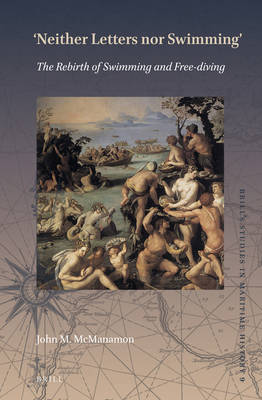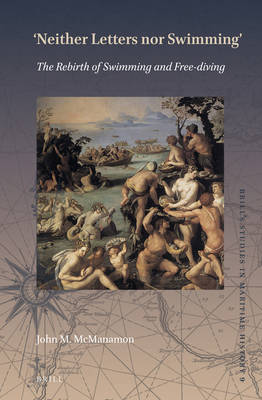
- Afhalen na 1 uur in een winkel met voorraad
- Gratis thuislevering in België vanaf € 30
- Ruim aanbod met 7 miljoen producten
- Afhalen na 1 uur in een winkel met voorraad
- Gratis thuislevering in België vanaf € 30
- Ruim aanbod met 7 miljoen producten
Zoeken
Neither Letters Nor Swimming: The Rebirth of Swimming and Free-Diving
John M McManamon
€ 236,45
+ 472 punten
Omschrijving
In a novel study of the impact of classical culture, John McManamon demonstrates that Renaissance scholars rediscovered the importance of swimming to the ancient Greeks and Romans and conceptualized the teaching of swimming as an art.
The ancients had a proverb that described a truly ignorant person as knowing "neither letters nor swimming." McManamon traces the ancient textual and iconographic evidence for an art of swimming, demonstrates its importance in warfare, and highlights the activities of free-divers who exploited the skill of swimming to earn a living. Renaissance theorists of a humanist education first advocated a rebirth for swim training, Erasmus included the classical proverb in his Adages, and two sixteenth-century scholars wrote treatises in dialogue form on methods for teaching young people how to swim.
The ancients had a proverb that described a truly ignorant person as knowing "neither letters nor swimming." McManamon traces the ancient textual and iconographic evidence for an art of swimming, demonstrates its importance in warfare, and highlights the activities of free-divers who exploited the skill of swimming to earn a living. Renaissance theorists of a humanist education first advocated a rebirth for swim training, Erasmus included the classical proverb in his Adages, and two sixteenth-century scholars wrote treatises in dialogue form on methods for teaching young people how to swim.
Specificaties
Betrokkenen
- Auteur(s):
- Uitgeverij:
Inhoud
- Aantal bladzijden:
- 484
- Taal:
- Engels
- Reeks:
- Reeksnummer:
- nr. 9
Eigenschappen
- Productcode (EAN):
- 9789004446205
- Verschijningsdatum:
- 4/03/2021
- Uitvoering:
- Hardcover
- Formaat:
- Genaaid
- Afmetingen:
- 155 mm x 234 mm
- Gewicht:
- 843 g

Alleen bij Standaard Boekhandel
+ 472 punten op je klantenkaart van Standaard Boekhandel
Beoordelingen
We publiceren alleen reviews die voldoen aan de voorwaarden voor reviews. Bekijk onze voorwaarden voor reviews.








